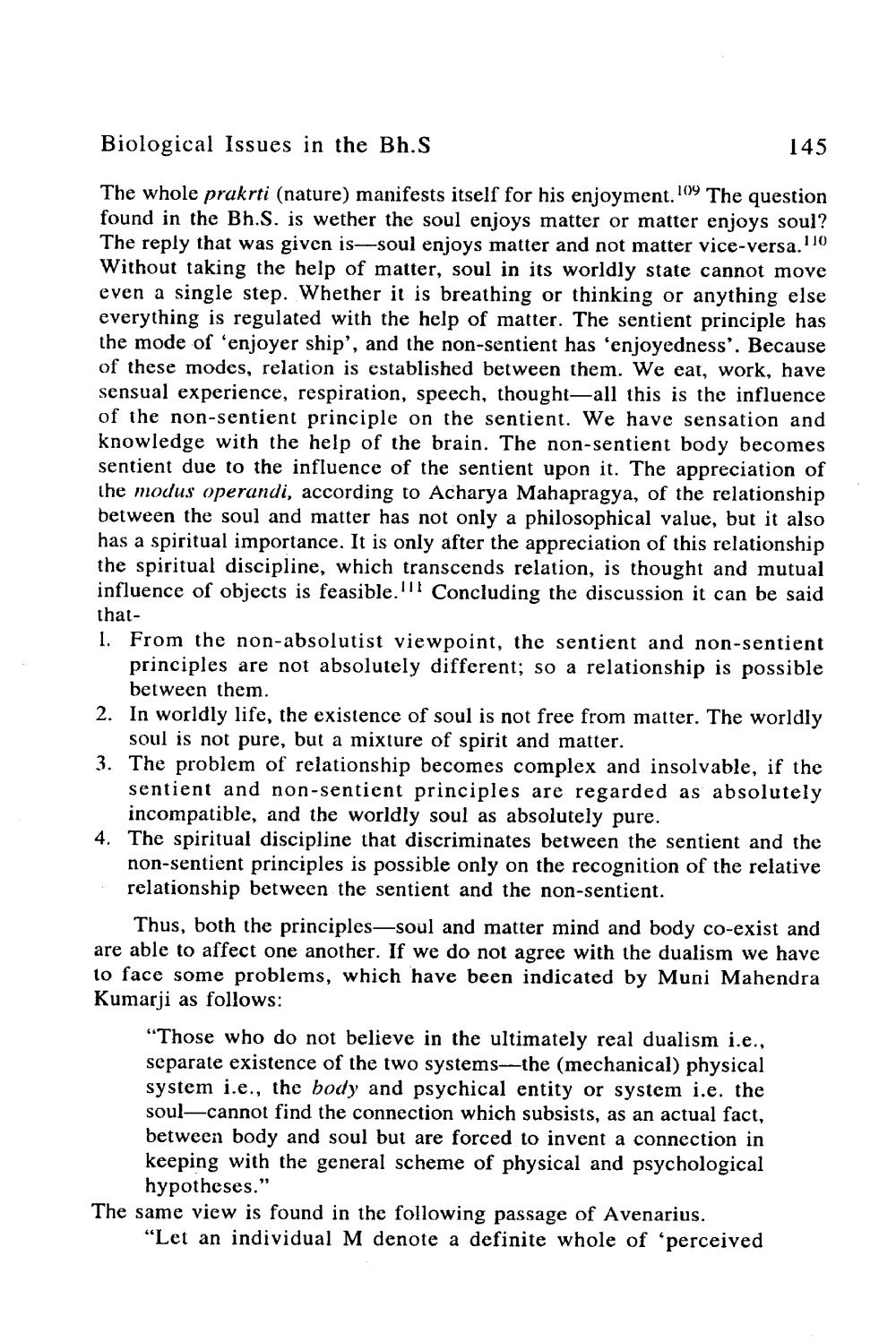________________
Biological Issues in the Bh.S
145
The whole prakrti (nature) manifests itself for his enjoyment. 109 The question found in the Bh.S. is wether the soul enjoys matter or matter enjoys soul? The reply that was given is-soul enjoys matter and not matter vice-versa. 110 Without taking the help of matter, soul in its worldly state cannot move even a single step. Whether it is breathing or thinking or anything else everything is regulated with the help of matter. The sentient principle has the mode of 'enjoyer ship', and the non-sentient has 'enjoyedness'. Because of these modes, relation is established between them. We eat, work, have sensual experience, respiration, speech, thought—all this is the influence of the non-sentient principle on the sentient. We have sensation and knowledge with the help of the brain. The non-sentient body becomes sentient due to the influence of the sentient upon it. The appreciation of the modus operandi, according to Acharya Mahapragya, of the relationship between the soul and matter has not only a philosophical value, but it also has a spiritual importance. It is only after the appreciation of this relationship the spiritual discipline, which transcends relation, is thought and mutual influence of objects is feasible. Concluding the discussion it can be said that1. From the non-absolutist viewpoint, the sentient and non-sentient
principles are not absolutely different; so a relationship is possible
between them. 2. In worldly life, the existence of soul is not free from matter. The worldly
soul is not pure, but a mixture of spirit and matter. 3. The problem of relationship becomes complex and insolvable, if the
sentient and non-sentient principles are regarded as absolutely
incompatible, and the worldly soul as absolutely pure. 4. The spiritual discipline that discriminates between the sentient and the
non-sentient principles is possible only on the recognition of the relative relationship between the sentient and the non-sentient.
Thus, both the principles-soul and matter mind and body co-exist and are able to affect one another. If we do not agree with the dualism we have to face some problems, which have been indicated by Muni Mahendra Kumarji as follows:
"Those who do not believe in the ultimately real dualism i.e., separate existence of the two systems--the (mechanical) physical system i.e., the body and psychical entity or system i.e. the soul-cannot find the connection which subsists, as an actual fact, between body and soul but are forced to invent a connection in keeping with the general scheme of physical and psychological
hypotheses." The same view is found in the following passage of Avenarius.
“Let an individual M denote a definite whole of perceived




